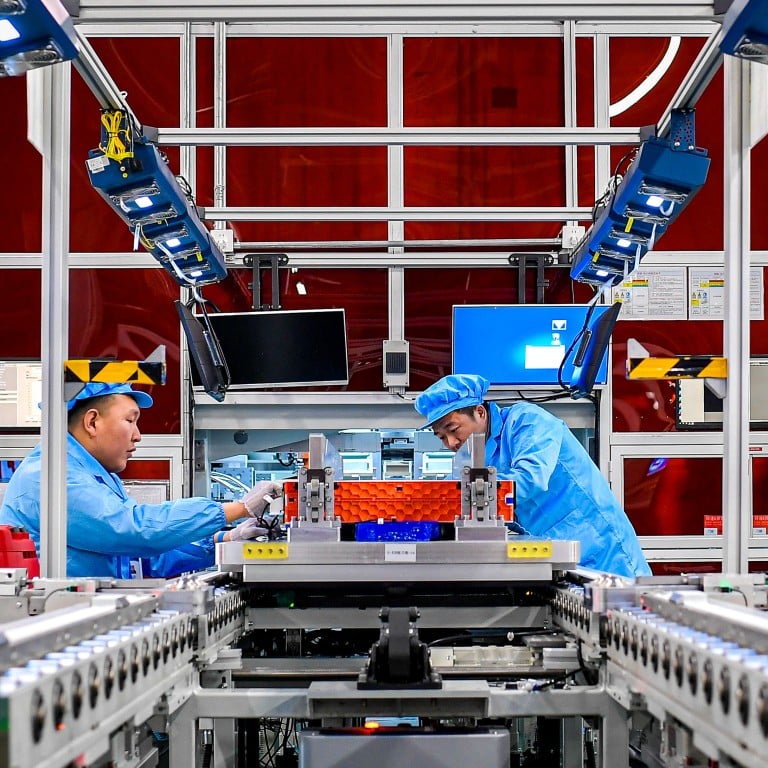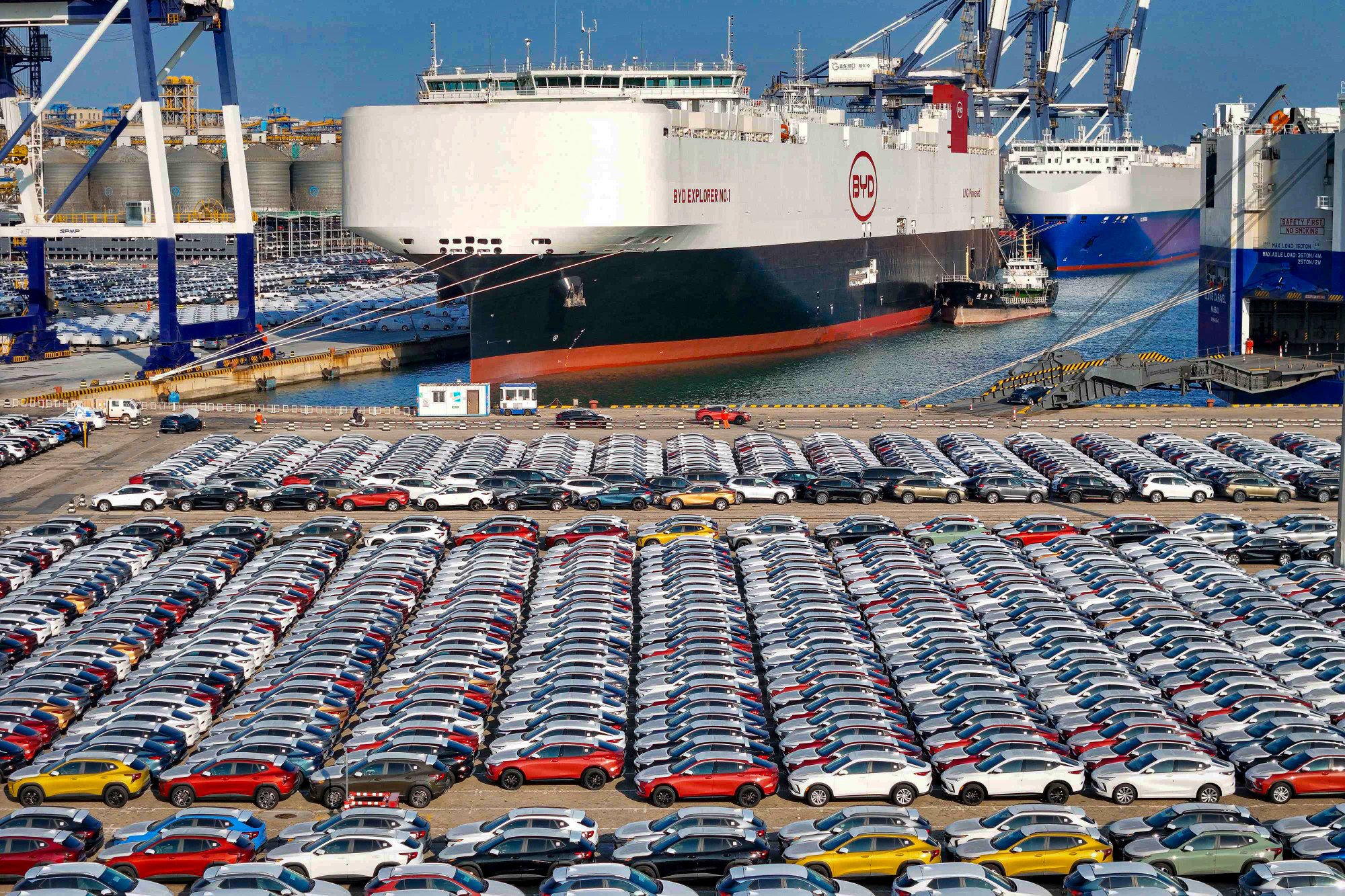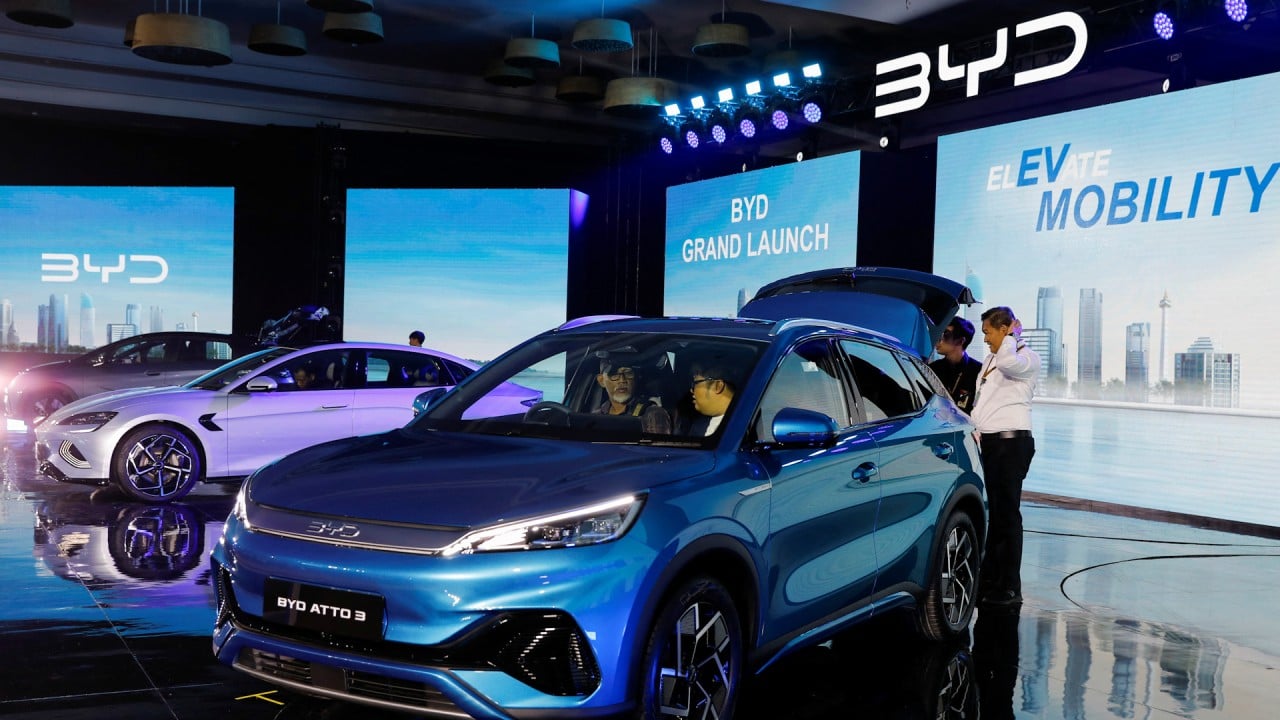
China’s lithium-ion battery industry faces excess inventory, production capacity as EV market downshifts: industry analysts
- The battery industry is in the middle or late stage of a market clearing, and is only expected to break even and turn profitable next year, Sealand Securities forecasts
- No long-term growth story for lithium as excess supply set to balloon from 5 kilotonnes in 2023 to 118 in 2025: Daiwa
China’s electric vehicle (EV) battery market is expected to see continuous destocking of inventory this year as demand for EVs cools and companies along the lithium-ion battery supply chain suffer losses amid a price war stemming from excess capacity, analysts said.
Some small manufacturers could be squeezed out of the market to cut losses and the country’s top battery manufacturers and lithium mining companies will have to wait for 2025 to turn a profit, they estimated.
“The industry is still struggling with overcapacity, but the gap in profitability between the first-tier and second-tier manufacturers has already widened in the first half of 2023,” Li Hang, an analyst at Guangxi-based brokerage firm Sealand Securities, said in a report this month. “Companies in the second- and third-tier are already making losses.”
The industry is in the middle or late stage of a market clearing, and is expected to break even and turn profit-making next year, Li wrote, adding that investment in new capacity is expected to slow down this year.

China, which dominates the global EV battery supply chain from the processing of critical minerals to battery cell production, experienced plunging prices for lithium and battery cells in 2023 amid excess supply.
Prices of lithium carbonate, the chemical used in EV batteries, tumbled by 77 per cent last year, after Beijing slashed subsidies for EVs at the beginning of 2023. Prices of Chinese battery cells fell by half during the year, according to Taiwan-based research company TrendForce.
EU climate demands set to erode Chinese EV makers’ export edge: expert
Capacity utilisation is a major headache for producers in mainland China. The industry produced 747 gigawatt-hours (GWh) of battery power last year, while only 387GWh was installed into products, according to the China Automotive Battery Innovation Alliance.
Prices of Chinese battery cells could further decline by 10 to 15 per cent in 2024, dragged down by slowing demand in China’s EV market, according to a report by Haitong International this month.
China’s domestic EV sales could grow 25 per cent to 9.44 million units this year, slowing from annual growth of 31 per cent in 2023 and 89 per cent in 2022, Citic Futures forecast.
Amid low prices, 2024 is estimated to see over 150 kilotonnes (kt) of lithium “supply at risk” globally, Dennis Ip, regional head of utilities research at Daiwa Capital Markets, said in a report last month. Excess supply in the global lithium market, which amounted to 5 kt in 2023, could worsen to 31 kt in 2024 and 118 kt in 2025, he forecasts.
Unlike sector bottoming-out over 2019 and 2020, Ip is not expecting a solid demand hike to follow a reduction in productive capacity this time around. Ip said. “We do not see a long-term growth story for lithium.”


